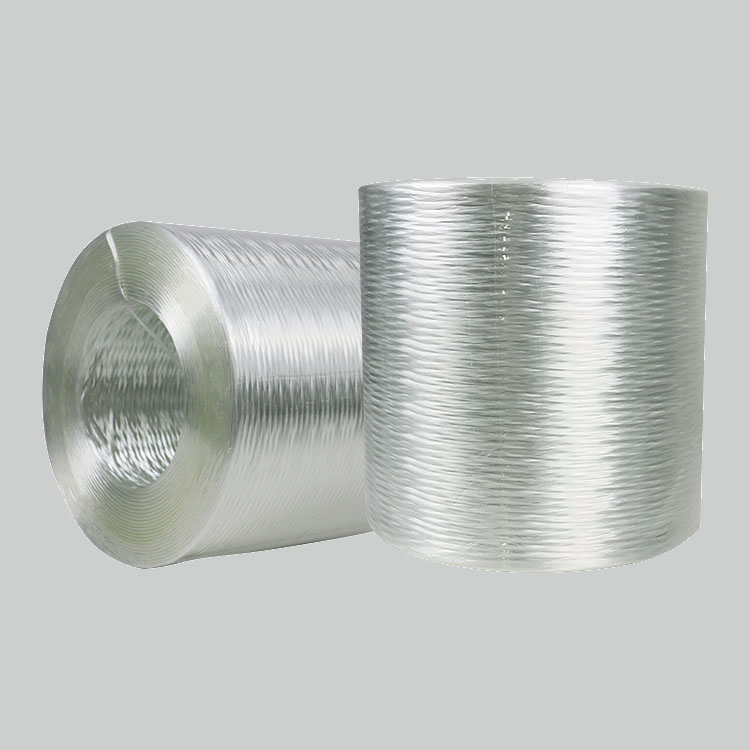What is fiberglass yarn used for?
In the vast tapestry of modern materials, fiberglass yarn has woven itself into a central role. This incredibly versatile material is used in a wide range of applications, each harnessing its unique properties for specific purposes. From strengthening composites to enhancing insulation, fiberglass yarn's utility is as diverse as it is indispensable. In this article, we will delve into the fascinating world of fiberglass yarn, exploring its properties, applications, and its pivotal role in products like Pleated Insect Screens and Fiberglass Chopped Strand Mat Rolls.
The Genesis of Fiberglass Yarn
Fiberglass yarn is essentially a textile material composed of fine glass fibers that are bundled together to create yarn-like strands. These fibers are typically made from silica sand, limestone, and other naturally occurring minerals. The process of manufacturing fiberglass yarn involves heating these materials to a molten state, which is then extruded through fine openings, creating long, thin strands of glass. These strands are then twisted and spun into a yarn form, resulting in a highly versatile material that can be used in a multitude of applications.
Properties of Fiberglass Yarn
Fiberglass yarn is prized for its exceptional properties that make it ideal for various industrial and domestic applications. These properties include:
High Strength: Fiberglass yarn boasts remarkable tensile strength, making it an ideal choice for applications that require reinforcement and durability. It can withstand heavy loads and harsh environmental conditions, making it a preferred choice for many construction and engineering projects.
Corrosion Resistance: Unlike many other materials, fiberglass yarn is highly resistant to corrosion and rust. This property makes it an excellent choice for outdoor and marine applications where exposure to moisture and salt is a concern.
Thermal Insulation: Fiberglass yarn is an excellent insulator, providing efficient thermal resistance. This property is particularly useful in applications where temperature control is crucial, such as insulation in buildings and industrial equipment.
Lightweight: Despite its strength, fiberglass yarn is remarkably lightweight. This characteristic is advantageous in applications where reducing weight is a priority, such as aerospace and automotive industries.
Electrical Insulation: Fiberglass yarn is an exceptional electrical insulator. This property is valuable in electrical and electronics applications where insulating materials are needed to prevent electrical conduction.
Chemical Resistance: Fiberglass yarn is generally resistant to a wide range of chemicals. This makes it suitable for applications in the chemical industry where exposure to corrosive substances is common.
Applications of Fiberglass Yarn
The versatility of fiberglass yarn is evident in the wide array of applications it serves. Here are some notable uses of this remarkable material:
1. Reinforcement in Composites: Fiberglass yarn is a fundamental component in composite materials, strengthening the final product. It is commonly used in manufacturing products like fiberglass-reinforced plastics (FRP), which find applications in automotive components, boats, and construction materials.
2. Insulation: The excellent thermal and electrical insulation properties of fiberglass yarn make it a key component in insulation materials. Fiberglass insulation is widely used in residential and commercial buildings to regulate temperature and save energy.
3. Textiles: Fiberglass yarn can be woven into fabrics that are heat-resistant and have superior durability. These fabrics are used in applications like fireproof suits, welding blankets, and protective clothing for high-temperature environments.
4. Pleated Insect Screens: Fiberglass yarn is a critical element in the production of pleated insect screens, which are commonly used in homes and businesses. These screens are designed to keep insects out while allowing fresh air to flow into the space. The fiberglass yarn used in these screens is not only strong but also resistant to environmental factors, ensuring the longevity of the product.
5. Chopped Strand Mat Rolls: Fiberglass chopped strand mat rolls, another application of fiberglass yarn, are essential in the production of composite materials. These rolls consist of randomly chopped strands of fiberglass yarn held together with a binder. They are used to reinforce various composite products, ranging from automotive parts to boat hulls. The versatility and strength of fiberglass yarn make it an indispensable component in these mat rolls.
6. Aerospace and Automotive Industries: The lightweight and high-strength properties of fiberglass yarn make it a valuable material in the aerospace and automotive sectors. It is used in the production of aircraft components, car bodies, and engine parts to reduce weight and enhance structural integrity.
7. Marine Applications: Fiberglass yarn's resistance to corrosion and water makes it an excellent choice for marine applications. It is used in boat construction, providing strength and longevity even in saltwater environments.
8. Electrical and Electronics: The electrical insulating properties of fiberglass yarn are utilized in the manufacturing of electrical components, circuit boards, and insulation for wiring.
9. Chemical Industry: The chemical resistance of fiberglass yarn is valuable in the chemical industry, where it is used in the construction of storage tanks, pipes, and equipment that come into contact with corrosive chemicals.
10. Construction: In the construction industry, fiberglass yarn is utilized in various forms, including mesh and reinforcement bars, to enhance the strength and durability of concrete structures.
Conclusion
Fiberglass yarn is a remarkable material that has woven itself into the fabric of modern life. Its exceptional properties, including high strength, thermal and electrical insulation, and corrosion resistance, make it a versatile and indispensable component in a multitude of applications. From enhancing composites in aerospace and automotive industries to providing durability in marine environments, fiberglass yarn plays a pivotal role. It is also a key component in products like Pleated Insect Screens and Fiberglass Chopped Strand Mat Rolls, showcasing its wide-reaching impact. As technology and innovation continue to advance, fiberglass yarn will undoubtedly remain a vital player in the world of materials science, contributing to our comfort, safety, and progress.



